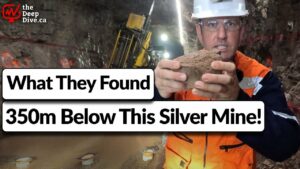Yale Resources Ltd. (TSX-V — YLL, OTCBB — YRLLF, and FSE — YAB) is pleased to report that optionee Mammoth Resources Corp. has announced the completion of the first phase of its comprehensive work program and that further work is planned for the 290 square kilometre Urique Project, located in Chihuahua State, Mexico. Work at Urique was performed by Yale on behalf of Mammoth.
As reported by Mammoth on October 9, 2012:
” The field exploration program spanned seven months beginning December 2011 and involved prospecting, detailed mapping, trenching, rehabilitation of the underground workings at the el Rosario mine, and sampling. A total of 597 rock samples and 74 geochemical samples were taken from a total of 25 occurrences and/or targets (3 occurrences in the northern portion of the property; “Urique North”, and 22 occurrences in the southern portion of the property; “Urique South”).
A number of very attractive grades of gold and silver were obtained from the rehabilitated, historic El Rosario mine at Urique South. Assays from this program help to add to and substantiate historical sample results from the underground workings, including the following highlight intersections:
Mammoth President and CEO, Thomas Atkins, commented on these results, stating: “When we plotted the combined gold and silver assay results at El Rosario as a gold equivalent for contouring purposes, we were very intrigued to see the frequency, distribution and grades of gold and silver throughout the underground workings. Looking at these results we see a number of areas in red indicating combined grades at, or in excess of five grams per tonne gold equivalent, hosted in possible mineralized shoots. The historic workings cover an approximate 150 metre by 150 metre area in an intensely silicified volcanic host rock not unlike the rocks that host the deposits of our neighbors and which we believe could be indicative of the ground’s proximity to a strong hydrothermal source at depth. At present we’re looking into interpreting some historical geophysical data for insights into structures and mineralization. We’re also investigating the cost and feasibility of drill testing these mineralized shoots at depth in a cost efficient manner with the objective of determining the extent to which grade and the dimensions of the gold-silver mineralized structures are enhanced at depth.”
Summary of Urique South 2012 Field Exploration Program
Initial work in the southern portion of the Urique Project concentrated on an approximate four kilometre by four kilometre area surrounding the town of Urique. To date, the most important target identified was the alteration and mineralization observed within the old workings at the El Rosario mine.
The property geology is predominantly underlain Tertiary aged felsic volcaniclastic rocks which overlie a lower volcanic sequence of andesitic flows and breccias, as well as intermediate composition volcano-sedimentary rocks. Granodioritic rocks intrude the lower volcanic sequence in the Urique canyon south of the town of Urique. Small intrusions/dykes were observed but generally not mapped in detail. Several mineralized occurrences are present within the property; they can be overall described mainly as low to intermediary sulphidation epithermal veins/ breccias structure hosted with the lower volcanic sequence.
A total of 22 targets were studied during the first phase field exploration program. The most attractive of these areas is the El Rosario area including the historic mine working at El Rosario. This area consists of narrow north-south to north five degrees east oriented and steeply dipping 70-75 degree northwest veins which could equally be described as sheared veins or breccias. Gold and silver plus minor amounts of copper, lead and zinc are confined within the veins and structures with few anomalous values present in the wall rock.
Recent surface mapping highlighted the fact that the veins are not straight but are located in a flexure point of the general north-south regional structural trend near-vertical andesite to dioritic dykse and normal faults which may suggest the presence of discordant structures in the Rosario target area. Flexures along mineralized structures and the intersection between structures are generally excellent target areas where major dilation can occur and create large mineralized ore shoots.
Based on these results it is recommended that further exploration work be undertaken to investigate mineralization at depth. The company is currently looking into interpreting some historical geophysical data for insights into structures and mineralization at depth and is investigating the cost to drill test mineralized shoots at depth in order to determine the extent to which gold-silver mineralized structures and grade may become enhanced at depth.”
About Yale Resources:
Yale Resources utilizes the project generator business model to maximize its exposure to discovery while minimizing shareholder risk. Yale currently has eight projects in its portfolio of which six are optioned out with commitments totalling approximately $1.0 M in expenditures during 2012.
On behalf of the Boards,
“Ian Foreman”
Ian Foreman, P.Geo.
President, Yale Resources Ltd.
For additional information on Yale Resources please call the Company at 604-678-2531
Neither TSX Venture Exchange nor its Regulation Services Provider (as that term is defined in the policies of the TSX Venture Exchange) accepts responsibility for the adequacy or accuracy of this release.
Statements in this press release, other than purely historical information, including statements relating to the Company’s future plans and objectives or expected results, may include forward-looking statements. Forward-looking statements are based on numerous assumptions and are subject to all of the risks and uncertainties inherent in resource exploration and development. As a result, actual results may vary materially from those described in the forward-looking statements.
As reported by Mammoth on October 9, 2012:
” The field exploration program spanned seven months beginning December 2011 and involved prospecting, detailed mapping, trenching, rehabilitation of the underground workings at the el Rosario mine, and sampling. A total of 597 rock samples and 74 geochemical samples were taken from a total of 25 occurrences and/or targets (3 occurrences in the northern portion of the property; “Urique North”, and 22 occurrences in the southern portion of the property; “Urique South”).
A number of very attractive grades of gold and silver were obtained from the rehabilitated, historic El Rosario mine at Urique South. Assays from this program help to add to and substantiate historical sample results from the underground workings, including the following highlight intersections:
- 1.7 m grading 9.74 g/t gold and 356.7 gpt silver (16.23 g/t gold equivalent);
- 1.2 m grading 5.16 g/t gold and 153.8 g/t silver (7.96 g/t gold equivalent);
- 5.0 m grading 0.78 g/t gold and 257.0 g/t silver (4.45 g/t gold equivalent); and
- 2.3 m grading 1.69 g/t gold and 153.8 g/t silver (3.37 g/t gold equivalent).
Mammoth President and CEO, Thomas Atkins, commented on these results, stating: “When we plotted the combined gold and silver assay results at El Rosario as a gold equivalent for contouring purposes, we were very intrigued to see the frequency, distribution and grades of gold and silver throughout the underground workings. Looking at these results we see a number of areas in red indicating combined grades at, or in excess of five grams per tonne gold equivalent, hosted in possible mineralized shoots. The historic workings cover an approximate 150 metre by 150 metre area in an intensely silicified volcanic host rock not unlike the rocks that host the deposits of our neighbors and which we believe could be indicative of the ground’s proximity to a strong hydrothermal source at depth. At present we’re looking into interpreting some historical geophysical data for insights into structures and mineralization. We’re also investigating the cost and feasibility of drill testing these mineralized shoots at depth in a cost efficient manner with the objective of determining the extent to which grade and the dimensions of the gold-silver mineralized structures are enhanced at depth.”
Summary of Urique South 2012 Field Exploration Program
Initial work in the southern portion of the Urique Project concentrated on an approximate four kilometre by four kilometre area surrounding the town of Urique. To date, the most important target identified was the alteration and mineralization observed within the old workings at the El Rosario mine.
The property geology is predominantly underlain Tertiary aged felsic volcaniclastic rocks which overlie a lower volcanic sequence of andesitic flows and breccias, as well as intermediate composition volcano-sedimentary rocks. Granodioritic rocks intrude the lower volcanic sequence in the Urique canyon south of the town of Urique. Small intrusions/dykes were observed but generally not mapped in detail. Several mineralized occurrences are present within the property; they can be overall described mainly as low to intermediary sulphidation epithermal veins/ breccias structure hosted with the lower volcanic sequence.
A total of 22 targets were studied during the first phase field exploration program. The most attractive of these areas is the El Rosario area including the historic mine working at El Rosario. This area consists of narrow north-south to north five degrees east oriented and steeply dipping 70-75 degree northwest veins which could equally be described as sheared veins or breccias. Gold and silver plus minor amounts of copper, lead and zinc are confined within the veins and structures with few anomalous values present in the wall rock.
Recent surface mapping highlighted the fact that the veins are not straight but are located in a flexure point of the general north-south regional structural trend near-vertical andesite to dioritic dykse and normal faults which may suggest the presence of discordant structures in the Rosario target area. Flexures along mineralized structures and the intersection between structures are generally excellent target areas where major dilation can occur and create large mineralized ore shoots.
Based on these results it is recommended that further exploration work be undertaken to investigate mineralization at depth. The company is currently looking into interpreting some historical geophysical data for insights into structures and mineralization at depth and is investigating the cost to drill test mineralized shoots at depth in order to determine the extent to which gold-silver mineralized structures and grade may become enhanced at depth.”
About Yale Resources:
Yale Resources utilizes the project generator business model to maximize its exposure to discovery while minimizing shareholder risk. Yale currently has eight projects in its portfolio of which six are optioned out with commitments totalling approximately $1.0 M in expenditures during 2012.
Ian Foreman, P.Geo., is Yale’s Qualified Person, according to National Instrument 43-101, for the Urique property and is responsible for any technical data mentioned in this news release.
Samples from Urique were prepared and analyzed by IPL Inspectorate in their facilities in Mexico and Vancouver, respectively. Samples generally consisted of 1-3 kg of material. Gold analyses were performed by 30 gram fire assay with an AA finish. Silver, copper, lead and zinc were analyzed as part of a multi-element ICP package using an aqua regia digestion. Over limit samples with greater than 1% Cu, Pb and Zn were re-analyzed using ore grade detection limits.
On behalf of the Boards,
“Ian Foreman”
Ian Foreman, P.Geo.
President, Yale Resources Ltd.
For additional information on Yale Resources please call the Company at 604-678-2531
Statements in this press release, other than purely historical information, including statements relating to the Company’s future plans and objectives or expected results, may include forward-looking statements. Forward-looking statements are based on numerous assumptions and are subject to all of the risks and uncertainties inherent in resource exploration and development. As a result, actual results may vary materially from those described in the forward-looking statements.

















